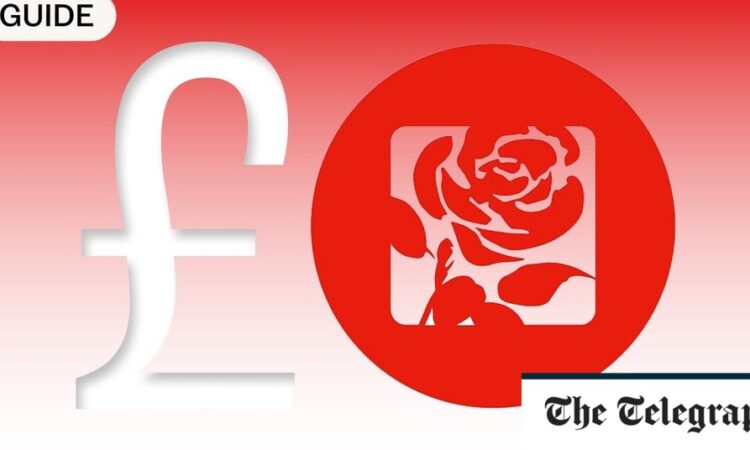
But reversing the change is far easier said than done, especially now that HMRC has confirmed the scrapping of the LTA in a policy paper published on Wednesday.
Rachel Vahey, of stockbroker AJ Bell, said: “Passing legislation to abolish the lifetime allowance altogether makes it far more difficult for policymakers to reverse the rules again, as Labour has pledged.”
Sir Steve Webb of LCP, a former pensions minister, has warned that reinstating the LTA is “fraught with difficulty” for a number of reasons.
For one, bringing back the cap on pension saving risks driving senior doctors to retire just before the election. A key reason for scrapping the LTA was to stop highly paid NHS doctors from retiring early to avoid tax bills.
There could also be “a flurry” of savers rushing to draw their pension in the run-up to the election, Sir Steve said.
To stop a flood of workers from retiring early, Labour could still decide to row back on its promise. As a result, Steven Cameron, of pensions firm Aegon, said: “Making predictions around the pensions lifetime allowance is extremely difficult.”
This has left savers with large pension pots facing a huge amount of uncertainty. Should they make the most of today’s generous pension rules, or err on the side of caution in case Labour pulls the rug out from underneath their feet?
Fortunately, even if the cap is reintroduced, savers who have made the most out of Mr Hunt’s rule change may still be able to protect their pension pot.
Since it was created in 2006, the lifetime allowance has been changed multiple times. In response, HMRC has introduced protections so those over the new limit could claim the old, higher limit.
Arguably, you should still seek to grow your pension as much as possible while the generous tax rules are in place.
Ms Vahey said Wednesday’s confirmation that the LTA will be cut means “those who feared hitting the lifetime allowance can resume contributions and keep building their pension pot”.
Tax relief makes saving into a pension very attractive, as any investment returns made in your fund will be free of capital gains tax and dividend tax.
As well as scrapping the LTA, Mr Hunt increased the annual allowance from £40,000 to £60,000 in the last Budget, allowing higher-earners to save large sums into their pension tax-free every year.
Some savers may be tempted to crystallise their pension early in case a tax charge is reintroduced, but you should be cautious about drawing your pension unless you really need to. Crystallising a lump sum, and taking it out of a pension, brings this money into the scope of inheritance tax.
2. Consider selling assets to avoid capital gains tax
An attack on capital gains tax rates could be on the cards if Labour gets into power, despite the party’s claims.
Capital gains tax receipts have been skyrocketing as landlords and company owners sell up, hitting a record £18bn in 2022-23. The Conservatives have already dramatically scaled back relief given to sales and payouts that incur capital gains and dividend taxes.
But under a Labour government, the tax take could grow ever bigger, accountants fear.
In 2022, the Office of Tax Simplification, a now disbanded quango, called for the rates to be aligned with income tax rates in order to close the gap between earned and unearned income.
Currently, basic-rate taxpayers pay 18pc on their profits from the sale of a second home and 10pc for shares while higher-rate taxpayers pay 28pc and 20pc.
Earlier this year, shadow chancellor Rachel Reeves said Labour had no plans to increase capital gains tax. But tax experts have said for years that a future government may find it too difficult to resist.
However, Aysha Marley, of RSM, said: “Ms Reeves may find it difficult to justify such a low rate of tax for wealthier individuals and rumours abound that she would consider lowering or even abolishing business asset disposal relief.”
“Business asset disposal relief” grants business owners a low 10pc rate on the first £1m of gains realised on the sale of a business.






